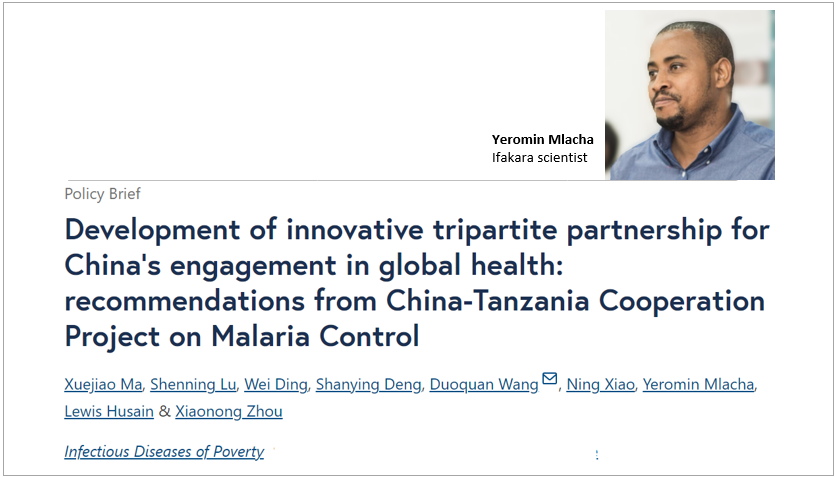
IMPACT: The power of international cooperation in malaria control

In a pioneering effort to combat malaria in Tanzania, a tripartite partnership between China, Tanzania, and the UK has generated promising results, demonstrating the effectiveness of international cooperation in tackling the disease.
As highlighted in a policy brief recently published on the Infectious Diseases of Poverty journal, written by the project scientists, among them Ifakara Health Institute scientist, Yeromin Mlacha, the project sought to explore the applicability of Chinese experiences in malaria control to reduce the burden of the disease in Tanzania.
The project known as the “China-Tanzania Cooperation Project on Malaria Control”, was jointly implemented by the National Institute for Parasitic Diseases (NIPD) at China CDC and Chinese Center for Tropical Diseases Research, Ifakara Health Institute and other partners from 2015 to 2022.
Impressive achievements
In the brief, the scientists outline some of the project’s key achievements, such as the development of the 1,7-malaria Reactive Community-based Testing and Response (1,7-mRCTR) model, derived from China which reduced malaria cases and the establishment of a local team of Tanzanian community health workers to ensure effective project implementation and sustainability.
“Impressive achievements were made through the pioneering efforts of triangular stakeholders of the project: (1) 1,7-malaria Reactive Community-based Testing and Response (1,7-mRCTR) was successfully derived from local context sharing Chinese 1-3-7 norm through the field implementation; (2) malaria prevalence in the intervention wards declined by 81% from 2015 to 2018 and further declined by 55% from 2018 to 2022 [3]; (3) a local team composed of 37 Tanzanian community health workers were built to be paired with Chinese on-site technical staff to ensure the project implementation and sustainability…”
Moreover, the project’s success extended beyond Tanzania, contributing to the scaling up of the 1,7-mRCTR model in Burkina Faso, Senegal, and Zambia, noted the scientists.
Overcoming challenges
The brief also points out challenges faced, including bureaucratic hurdles and limited competencies and experience in China's global health workforce. Addressing these challenges, the scientists outlined recommendations such as mobilization of more resources, strengthening global health competencies by enhancing cross-cultural field practices through triangular cooperation, and adopting a paired learning approach to facilitate competence enhancement.
Scaling up partnership success
“The innovative tripartite partnership may provide a model for China’s future engagement in global health cooperation. Scaling up tripartite partnerships for engagement in global health, China can leverage its strengths and technologies, while utilizing the advantages of other partners to address pressing global health challenges and promote sustainable development.”
The success of the China-Tanzania-UK tripartite partnership underscores its potential as a model for future global health projects involving various partners. Such collaborations hold promise in addressing pressing global health challenges and promoting sustainable development.
Author’s involved in writing the brief
The brief was authored by Xuejiao Ma, Shenning Lu, Wei Ding, Ning Xiao, Duoquan Wang and Xiaonong Zhou form the National Institute of Parasitic Diseases, Chinese Center for Disease Control and Prevention (Chinese Center for Tropical Diseases Research); Shanying Deng from the University of Hong Kong; Yeromin Mlacha from Ifakara Health Institute; and Lewis Husain from Institute of Development Studies, UK.
Read the article here.
